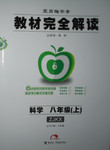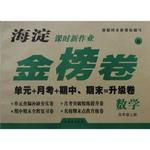题目内容
【题目】
【1】Alex is crazy about computer.He wants to be a computer ________(工程师)in the future.
【2】Being tall gives him an _________(优势)over the other basketball players.
【3】The young detective decided to _________(find out)the truch alone.
【4】My father is not in.He has gone _________(away from one’s own country)on business.
【5】________ People can’t hear,so they always use their hands to communicate.
【答案】
【1】engineer
【2】advantage
【3】discover
【4】abroad
【5】deaf
【解析】
【1】考查名词。句意:Alex痴迷于电脑。他将来想成为一名计算机工程师。名词engineer(工程师)作表语,故填engineer.
【2】考查名词。句意:个子高使他比其他篮球球员有优势。名词advantage(优势)作宾语,故填advantage.
【3】考查动词。句意:这个年轻的侦探决定独自查明真相。动词discover= find out(发现、查明),故填discover.
【4】考查副词。句意:我的父亲不在家。他出国去做生意了。副词abroad= away from one’s own country(在国外)作状语,故填abroad.
【5】考查形容词。句意:聋子不能听见,所以他们总是使用他们的手语去交流。形容词deaf(聋的)作定语,修饰名词people,故填deaf.

 王后雄学案教材完全解读系列答案
王后雄学案教材完全解读系列答案 海淀课时新作业金榜卷系列答案
海淀课时新作业金榜卷系列答案